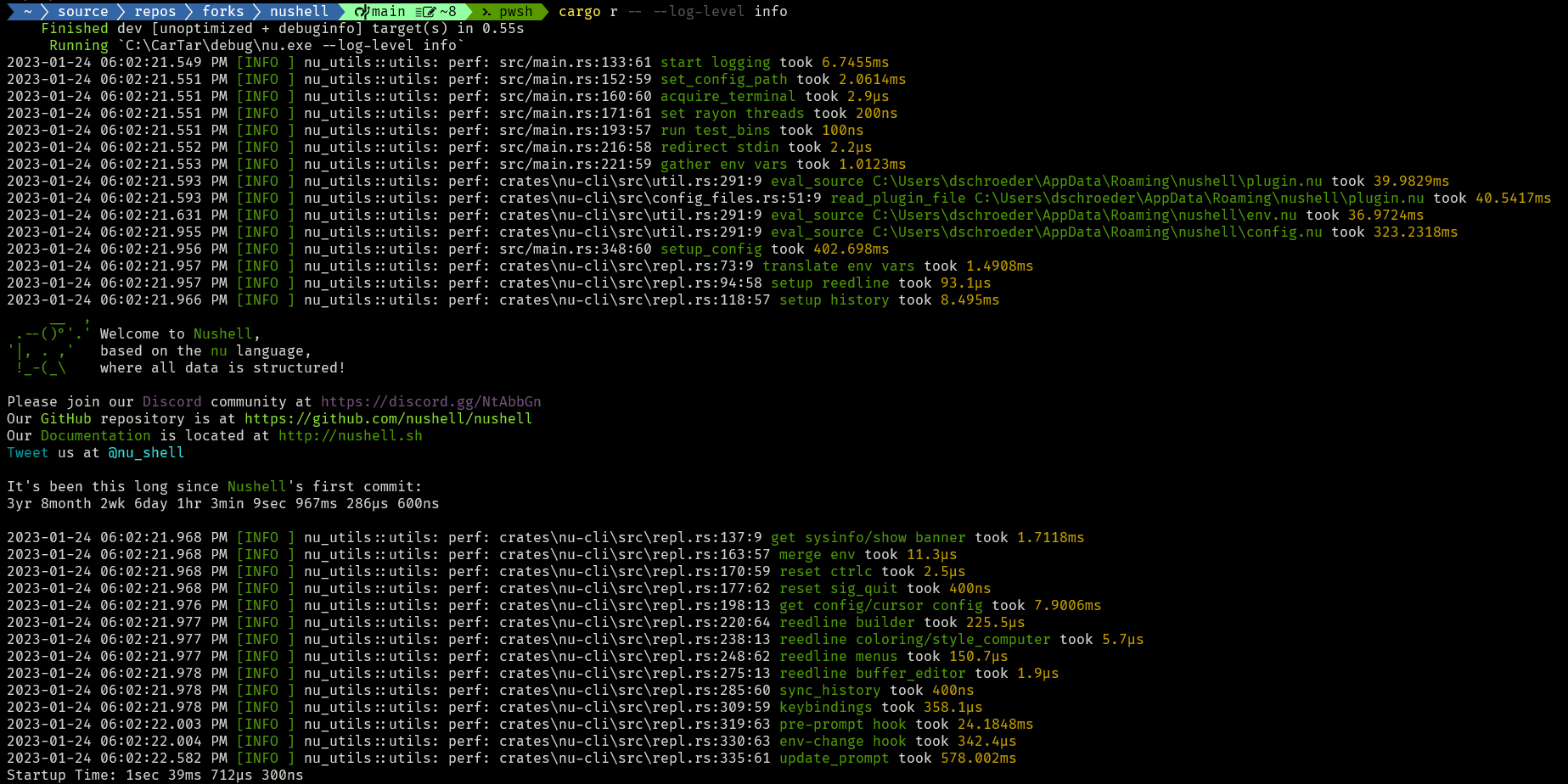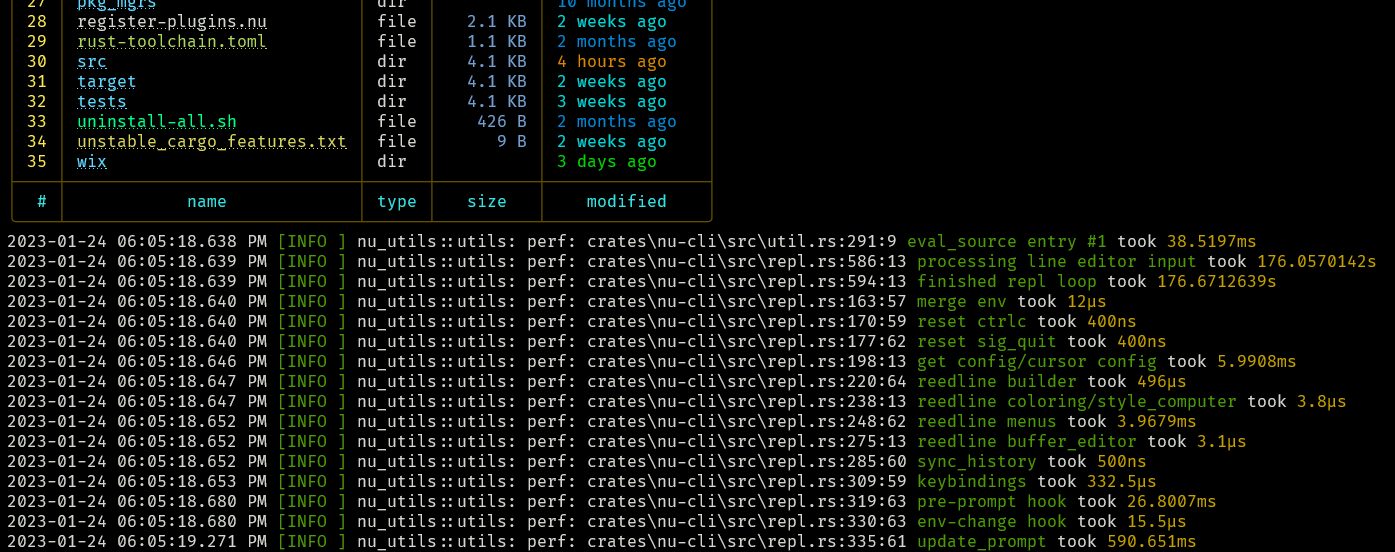mirror of
https://github.com/nushell/nushell.git
synced 2025-08-08 12:55:29 +02:00
# Description This PR changes the old performance logging with `Instant` timers. I'm not sure if this is the best way to do it but it does help reveal where time is being spent on startup. This is what it looks like when you launch nushell with `cargo run -- --log-level info`. I'm using the `info` log level exclusively for performance monitoring at this point.  ## After Startup Since you're in the repl, you can continue running commands. Here's the output of `ls`, for instance.  Note that the above screenshots are in debug mode, so they're much slower than release. # User-Facing Changes # Tests + Formatting Don't forget to add tests that cover your changes. Make sure you've run and fixed any issues with these commands: - `cargo fmt --all -- --check` to check standard code formatting (`cargo fmt --all` applies these changes) - `cargo clippy --workspace -- -D warnings -D clippy::unwrap_used -A clippy::needless_collect` to check that you're using the standard code style - `cargo test --workspace` to check that all tests pass # After Submitting If your PR had any user-facing changes, update [the documentation](https://github.com/nushell/nushell.github.io) after the PR is merged, if necessary. This will help us keep the docs up to date.
Nushell core libraries and plugins
These sub-crates form both the foundation for Nu and a set of plugins which extend Nu with additional functionality.
Foundational libraries are split into two kinds of crates:
- Core crates - those crates that work together to build the Nushell language engine
- Support crates - a set of crates that support the engine with additional features like JSON support, ANSI support, and more.
Plugins are likewise also split into two types:
- Core plugins - plugins that provide part of the default experience of Nu, including access to the system properties, processes, and web-connectivity features.
- Extra plugins - these plugins run a wide range of different capabilities like working with different file types, charting, viewing binary data, and more.